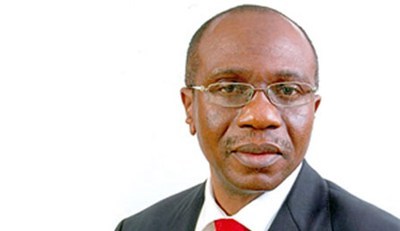The Central Bank of Nigeria (CBN) on Monday pegged dollar sale to invisibles such as Basic Travel Allowance (BTAs), medicals and school fees abroad at N360 per dollar.
The bank said it had also released the sum of $85 million for onward sale to the retail end-users under the intervention window, while offering the sum of $100 million to authorised forex dealers in the interbank wholesale window to meet the requests of genuine wholesale customers in other aspects of the market.
CBN’s acting director in charge of corporate communications, Mr. Isaac Okorafor, said the rates in the interbank window for wholesale transactions would still be determined by activities in the interbank market.
Furthermore, he disclosed that all banks had also been directed to immediately post the new N360/$1 rate on electronic display boards in the banking halls of their branches, adding that examiners from the CBN would visit banks to ensure the new rates are implemented.
The CBN spokesmen also reiterated the Bank’s directive to all banks to process and meet the demand for Travel Allowances (PTA/BTA) by end-users within 24 hours of such application, while applications for school fees and medical bills are to be met within 48 hours of such application.
Okorafor warned that the new move, aimed at further easing access of genuine end-users to forex, prohibited banks from selling foreign exchange funds meant for invisibles to Bureau De Change.
Going forward, he reiterated that all banks would receive amounts commensurate with their demand per week, which would be sold to customers who meet usual basic documentary requirements.
He therefore urged customers to report any erring bank to the CBN for investigation and appropriate sanction.
He also urged customers to report any erring bank to the CBN for investigation and appropriate sanction.
The CBN crashed the price of dollar from N520 per dollar to N377 as at Sunday through its intervention window within three weeks.
The apex bank also said it will immediately deploy its examiners to all the commercial banks to monitor implementation of the directive and ensure compliance with the new retail rate.
There had been complaints that some banks are delaying the sale of forex to retail customers in contrast to the new FX policy issued by the CBN recently.
Beyond its earlier directive that all banks should open teller point for retail FX transactions in all their branches, the CBN said all the banks must have an electronic display board in all their branches, showing rates of all trading currencies and that customers must insist on processing FX transactions based on the displayed rates.
Banks are mandated to process and meet the demand for Travel Allowances (PTA/BTA) by end-users within 24 hours of such application as long as the end- users meet basic requirements already outlined in earlier directives, with a mandate to process and meet demands for school fees and medical bills within 48 hours of such application.
The appreciation of the naira against the US dollar is taking its toll on the parallel market and by extension, Bureau de Change (BDCs).
President of the association of currency traders in Nigeria, Alhaji Aminu Gwadabe told our correspondent that his members suffered losses of about N130 million from last week’s allocation when the BDCs who got dollar allocations from the CBN at N381 per dollar were unable to sell, owing to drastic fall in the price of dollar at the street market.
The insistence of the public not to buy dollars for allowable invisible transactions such as medicals, school fees, personal and basic travel allowances above the N375 per dollar from the BDCs, a rate which is lower than the BDCs’ purchasing rates of N381 per dollar, Gwadabe said, is a challenge the operators are grappling with.
According to Gwadabe, his association is yet to get a response from the CBN on their request for a review of the rates, even as they can no longer operate at a loss.
“Up till now they are yet to reply to our request. It appears it is taking time and the unfortunate aspect is that the BDC cannot operate with a rate that is higher than what is obtainable at the bank and at the parallel market”, he said.
Not a few people believe that the CBN is achieving its aim of closing the hitherto wide gap between the official market and the black market.














